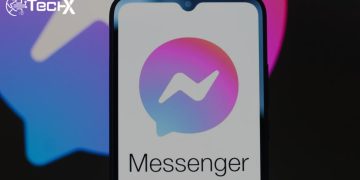Spotify is embroiled in controversy after permitting AI-generated songs that mimic deceased artists without proper oversight. Fans, musicians, and ethicists condemn the practice, warning of unchecked digital resurrections. The lack of regulation raises ethical concerns, as AI clones exploit artists’ legacies for profit. Critics demand accountability, fearing a future where deceased musicians become tools for unchecked AI experimentation.
No Filters, No Permission, No Boundaries
Blunt Magazine reports Spotify lacks automated systems to detect or restrict AI-generated tracks impersonating dead artists. Anyone can upload songs under legendary names without estate consent. This loophole enables exploitation, deceiving listeners and diluting artistic legacies. From Tupac to Amy Winehouse, AI-generated tracks risk commercializing artists’ voices posthumously, raising urgent ethical and legal questions about digital identity ownership.
The Deepfake Music Era Has Arrived
AI voice cloning now replicates singers’ tones, emotions, and styles with alarming accuracy. TikTok accounts and underground labels release “new” songs by long-deceased artists, unsettling fans. While some find the tracks haunting, ethicists demand industry reforms. Dr. Alina Riaz warns against treating deceased artists’ voices as public domain, calling the trend exploitative rather than innovative. The debate highlights growing tensions between technology and artistic integrity.
Spotify’s Silence Fuels Ethical Concerns
Despite mounting criticism, Spotify remains silent on AI-generated impersonations. Unlike YouTube, which mandates AI disclosures, Spotify profits from synthetic tracks without labeling or restrictions. Critics argue that this encourages unethical deepfake music, which manipulates nostalgia for streams. Without platform accountability, AI-generated content risks normalizing unauthorized digital resurrections, further eroding trust in music authenticity.
Legal Void Leaves Artists Vulnerable
No laws currently govern digital voice ownership after death, allowing unchecked AI exploitation. Deceased artists could become perpetual content farms, performing songs they never approved. This legal gray area enables labels to profit from AI-generated tracks without consequences. Until legislation catches up, artists’ estates must fight to protect their loved ones’ legacies from unauthorized AI use.
Fans Demand Transparency and Consent
Listeners express discomfort over AI-generated songs falsely attributed to late artists. Many argue that posthumous releases should require estate approval. Without consent, AI music feels like a violation, exploiting fan loyalty. Ethical concerns grow as technology outpaces regulation, leaving fans questioning whether they’re supporting authentic art or manipulated content.
The Future of Music in the AI Age
The AI-music boom challenges industry norms, forcing a reckoning over ethics and ownership. While AI offers creative possibilities, unchecked use risks devaluing human artistry. Platforms like Spotify must implement safeguards, ensuring transparency and consent. Without intervention, the music industry risks becoming a Wild West of AI exploitation, where deceased artists lose control over their voices.
Conclusion: A Call for Regulation and Respect
Spotify’s inaction highlights the urgent need for AI music regulations. Protecting artists’ legacies requires platform accountability, legal frameworks, and ethical standards. Until then, the unchecked rise of deepfake music threatens to undermine trust, exploit nostalgia, and disrespect the dead. The industry must act before digital resurrections erase the line between human creativity and artificial manipulation.















